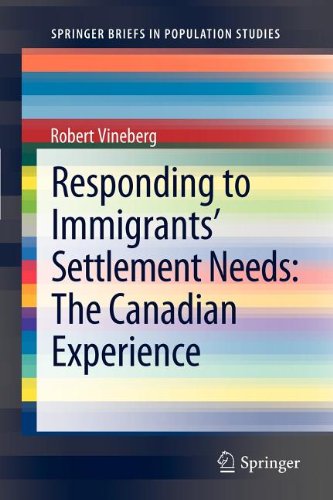

Most ebook files are in PDF format, so you can easily read them using various software such as Foxit Reader or directly on the Google Chrome browser.
Some ebook files are released by publishers in other formats such as .awz, .mobi, .epub, .fb2, etc. You may need to install specific software to read these formats on mobile/PC, such as Calibre.
Please read the tutorial at this link: https://ebookbell.com/faq
We offer FREE conversion to the popular formats you request; however, this may take some time. Therefore, right after payment, please email us, and we will try to provide the service as quickly as possible.
For some exceptional file formats or broken links (if any), please refrain from opening any disputes. Instead, email us first, and we will try to assist within a maximum of 6 hours.
EbookBell Team

4.3
68 reviewsWhile much has been written about Canada’s modern settlement program and there is a growing body of research and analysis of the settlement and integration successes and challenges of recent years, there is virtually no literature that has addressed the history of settlement services since the beginning of immigration to Canada. Some survey histories of Canadian Immigration have touched on elements of settlement policy but no history of services to immigrants in Canada has been published heretofore. Responding to Immigrants’ Settlement Needs: The Canadian Experience addresses this gap in the historiography of Canadian Immigration. From the tentative steps taken by the pre-Confederation colonies to provide for the needs of arriving immigrants, often sick and destitute, through the provision of accommodation and free land to settlers of a century ago, to today’s multi-faceted settlement program, this book traces a fascinating history that provides an important context to today’s policies and practices. It also serves to remind us that those who preceded us did, indeed, care for immigrants and did much to make them feel welcome in Canada. The Canadian experience in integration, over the past two centuries, suggests many policy-related research themes for further exploration both in Canada and in other immigrant receiving countries.